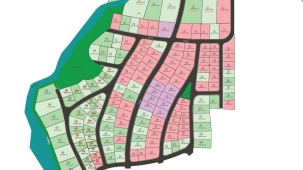For Sale
 8
8
 8
8
- berths: 3
- total square: 590 m²
 24
24
- berths: 2
- total square: 111 m²
 16
16
- berths: 2
- total square: 61 m²
 13
13
 18
18
- berths: 4
- total square: 118 m²
 17
17
- total square: 1580 m²
- berths: 2
- total square: 100.18 m²
 10
10
- berths: 4
- total square: 158 m²
 13
13
 10
10
Navigating Real Estate Property Purchase: Pros and Cons, Finding a Good Agent, and Key Considerations Before Signing
Purchasing real estate is a significant decision that can be both thrilling and daunting. Whether you're a first-time homebuyer, an investor, or looking for a vacation property, understanding the complexities of the real estate market is crucial. This article will explore the advantages and disadvantages of property purchases, tips for finding a reputable real estate agent, and essential factors to check before signing a contract.
The Pluses and Minuses of Buying Real Estate
Advantages of Purchasing Real Estate:
Investment Potential: Real estate can appreciate over time, offering the possibility of profit when you sell. It's often viewed as a safer investment compared to stocks and bonds.
Stable Housing Costs: Owning a property typically means fixed mortgage payments, which can protect you from rising rental costs and provide long-term financial predictability.
Personalization: When you own a home, you can make changes and improvements to suit your tastes and needs without needing a landlord’s permission.
Tax Benefits: Homeowners may qualify for various tax deductions, including mortgage interest and property taxes, which can result in significant savings.
Equity Building: As you pay down your mortgage, you build equity in your home, which can be leveraged for future financial needs.
Disadvantages of Purchasing Real Estate:
High Initial Costs: The upfront costs of buying property can be substantial, including the down payment, closing costs, and various fees.
Market Volatility: Property values can fluctuate based on economic conditions, and there’s a risk that your home may lose value, especially in downturns.
Maintenance Responsibilities: Homeownership comes with the responsibility of maintenance and repairs, which can be time-consuming and costly.
Less Flexibility: Owning a home can tie you down geographically, making it more challenging to relocate for job opportunities or personal reasons.
Potential for Financial Strain: Unexpected expenses, such as major repairs or market downturns, can create financial stress for homeowners.
How to Find a Good Real Estate Agent
Finding the right real estate agent can make all the difference in your property purchase experience. Here are some tips to help you find a reputable agent:
Ask for Recommendations: Seek referrals from friends, family, or colleagues who have recently bought or sold property. Personal recommendations can lead you to trustworthy agents.
Research Online: Use online platforms like Zillow, Realtor.com, or local real estate websites to find agents with strong reviews and successful sales records in your desired area.
Check Credentials: Ensure the agent is licensed and check their track record. Look for additional designations, such as a Certified Residential Specialist (CRS) or Accredited Buyer’s Representative (ABR).
Interview Multiple Agents: Don’t settle on the first agent you meet. Interview several to gauge their knowledge, experience, and compatibility with your goals.
Assess Local Market Knowledge: A good agent should be well-versed in the local market, including current trends, neighborhoods, and property values.
Evaluate Communication Skills: Choose an agent who communicates effectively and listens to your needs, ensuring a smoother buying process.
Key Considerations Before Signing the Contract
Before you finalize your property purchase, there are several crucial aspects to review:
Conduct a Home Inspection: Always hire a professional inspector to evaluate the property's condition. This can uncover hidden issues that may require expensive repairs.
Review Property Disclosure Statements: Sellers are typically required to provide disclosure statements detailing the property's condition and any known issues. Review these carefully to understand potential problems.
Understand the Terms of the Contract: Read the purchase agreement thoroughly. Pay attention to the contingencies, closing date, and any conditions that need to be met before finalizing the sale.
Evaluate Financing Options: Secure a mortgage pre-approval before making an offer. This will help you understand your budget and show sellers that you are a serious buyer.
Consider Additional Costs: Beyond the purchase price, factor in property taxes, homeowners insurance, and potential homeowners association (HOA) fees.
Negotiate Terms: Don't hesitate to negotiate the purchase price and any repairs or concessions with the seller. Your agent can assist you in formulating a reasonable offer.
Consult Professionals: In addition to your agent, consider hiring a real estate attorney to review the contract and ensure your interests are protected.
Conclusion
Buying real estate is a significant investment that requires careful consideration of the pros and cons. With the right preparation and guidance from a skilled real estate agent, you can navigate the process smoothly. Remember to conduct thorough research, assess your options, and stay informed about the market to make the best decision for your future. Whether you are purchasing your first home or adding to your investment portfolio, taking the time to understand these elements will set you up for success.











































